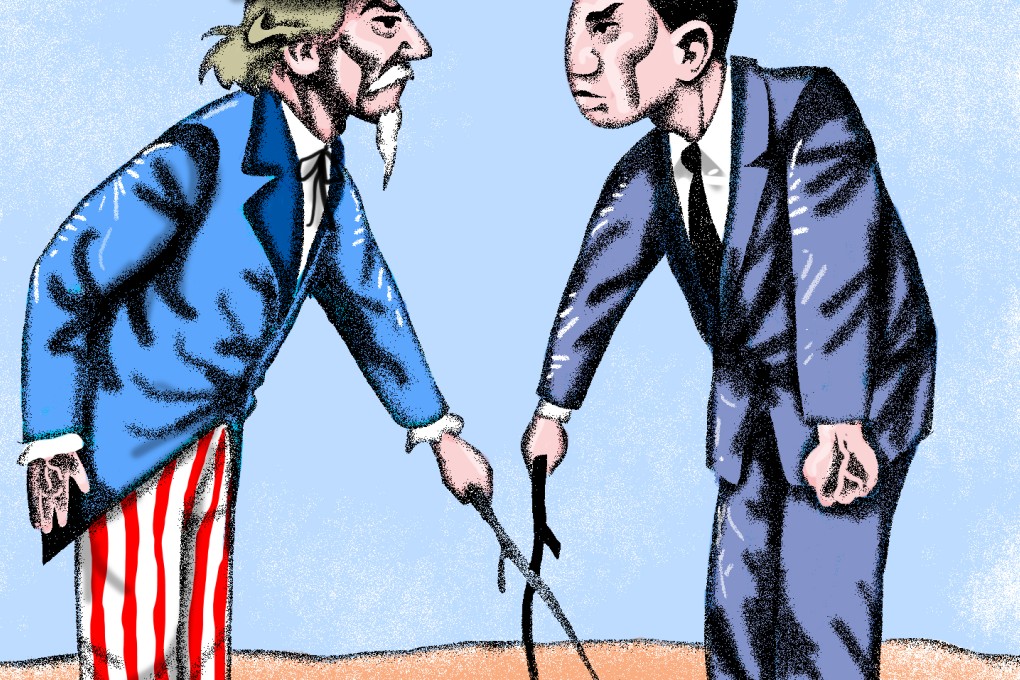Insecurities and bluster: the roots of distrust between China and the US
Bilahari Kausikan says while war between the US and China is highly unlikely, relations will remain fundamentally shaky if America continues to ignore the existential anxiety of China’s communist leaders, and they, for their part, continue to respond with strident nationalism


READ MORE: In a fundamental shift, China and the US are now engaged in all-out competition
US-China relations are mature: it has been 44 years since president Richard Nixon’s visit to Beijing transformed the global strategic landscape. US-China relations are intricately interdependent across a broad spectrum of domains, and are infused with deep strategic distrust. The two are currently groping towards a new modus vivendi with each other and the rest of East Asia. The complexity of their relations, and hence the complexity of the adjustments between them, form a large part of the uncertainties of our times.
US-China relations have been rife with misunderstanding. The most persistent in recent times is the notion that economic reform will lead to political reform
My purpose here is to sketch some of the issues that will have to be confronted. In particular, I want to deal with the roots of the strategic distrust between them. Unless that is understood and dealt with, no matter how well the US and China may work together on climate change or terrorism or finance or any other specific issue, a stable new equilibrium will be difficult – if not impossible – to achieve. And even if some sort of equilibrium is reached, it will be difficult to maintain.
Despite or perhaps because of their long experience of each other, US-China relations have been rife with misunderstanding. The most persistent in recent times is the notion that economic reform will lead to political reform. American attitudes towards China have oscillated between hopes and fears that perhaps say more about America than China. What is surprising is that despite persistent misunderstanding, there has been so little trouble, although when trouble ensues it has been spectacular, as during the Korean war.

Today, the dominant attitude seems to be drifting towards regarding China as a threat, at least in the American media and political discourse. Perhaps it is. But it is important to understand the nature of the challenge accurately and exaggerating the so-called “China threat” is as bad as wishful thinking.
Competition and rivalry are intrinsic parts of relations between all major powers. As China gains strength and confidence, it is bound to pursue its interests more assertively and acquire the instruments to do so. We may consider China’s military modernisation as in our interests or see it as against our interests, but China acquiring a modern military is not in itself unusual. Competition is not necessarily conflict. The important question is what use China makes of its growing military strength.
This is not a question that should lend itself to facile answers. US-China relations defy simple characterisation. But it is certainly not a “clash of civilisations”.